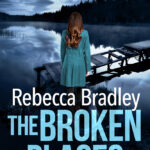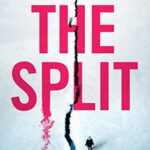This Writing Crime series has focused on being a series of posts about policing and facts about policing so that crime writers can make their fiction as realistic as possible. But, today I have a question for you and it is this; Do you need to make your fiction factually realistic if you have a good story?
Do you actually have to care whether you need grounds to enter and search a property or if it reads more dramatically, is it okay if your cops just enter (illegally) and do a search in the middle of the night?
Why am I asking this?
Because I recently finished watching the six-part drama series Bulletproof and it brought up these questions for me.
Yes, it looks exciting doesn’t it? It was a great series. I really enjoyed it. But…
It was nothing and I mean nothing like real policing. The scenario I talked about above, where an illegal search was conducted, it was on this show. And this was just one of the many, and I mean, many policing factual fails they did. They weren’t interested in writing a police procedural show, there are plenty of those about, they were obviously there for the drama and the relationship between these two guys. And I, as someone who knows policing, was hooked. So, yes, it worked, they got away with it. Yes, I did cringe and I did moan at my television set every so often, but not enough to turn the series off because I wanted to know what happened to these guys next. I was invested in their story.
Could you get away with it in a novel, if your story is as strong and exciting and thrilling? Or do you think it would throw a reader out of the story? Would you risk it? Or is it that a few minor not-quite-factually-corrects are fine because it makes the story flow better, but then how many and how minor?
For me, I think you have to have a light touch if you aren’t being factually correct in a novel or you will get readers complaining. Do it, but in the right places and where story is key. Or do it if you are outright doing a story like Bulletproof where from the start it is nothing at all like the real world and you just want to spin a good yarn. If you put yourself somewhere in the middle ground of these two I don’t think your readers will know how to take it because they’re intelligent and they know a lot nowadays.
What are your thoughts?
You can find all other posts in this series HERE.
 Rebecca Bradley is a retired UK police detective with over 15 years UK policing experience. Seven of those years were in uniform and the rest in a specialist investigative department where She handled multiple, serious and complex investigations. She is now a crime writer and offers a police procedural fact-checking service, available to all crime writers setting their work in England or Wales.
Rebecca Bradley is a retired UK police detective with over 15 years UK policing experience. Seven of those years were in uniform and the rest in a specialist investigative department where She handled multiple, serious and complex investigations. She is now a crime writer and offers a police procedural fact-checking service, available to all crime writers setting their work in England or Wales.
Please see THIS POST for further details.
Join my Writing Crime group. If you sign up to the group you will receive a police MG11 statement (a genuine statement paper – I found online) which I have written a statement on, using an incident that occurs at the end of my novella, Three Weeks Dead. So, it’s a genuine statement, authentically written by an ex-detective.
What else will you receive in this group?
Every month I will send you, either;
- Another document I have completed.
- A link to an online document I know will help you.
- Another police document that forms part of a police investigation.
All of these can be printed out and kept in a folder and your folder will grow with policing information that you, as writers, can use, or ignore, as you wish. It is fiction, but having the information means you can make an informed decision.
If you want to be a part of this group and to claim your first item (the completed statement) then go HERE.



It perhaps also depends on how well known the incorrect event is.
You have a point. A lot does depend on what the reader or viewer knows.
Oh, that’s such an interesting question, Rebecca! There are some series I’ve watched that I know aren’t factually correct, but still drew me in. Something about them (characters, story arcs, something) drew me in. On the other hand, when I read, I do like at least general accuracy. If one or another detail is used for drama, not fact, that can work. But, in general, I like my stories to ring true.
Isn’t it funny how I think television dramas can get away with a lot more than books can.
I have to admit I love true crime shows and documentaries more than the scripted programs. I like stories to follow close to the rules. Certain things like, getting forensic results back from the lab really fast can be fudged a bit.
I just finished a Ok where the Chief of Police repeatedly touched and moved evidence and items in a crime scene. No gloves, no pictures taken. That bothered me.
Yes, that would also annoy me. The little things like that probably annoy me more than the great big events like the ones described above because it’s not needed for story, it’s just lazy.
Oops typo – just finished a book…
I think the light touch approach you mentioned is probably right, Rebecca. You still want the reader to feel it could be real.
Yes, and I think television can get away with a lot more than books can. For some reason readers are more harsh on authors than script-writers.
Let me hook you up with some Royalty free beats and rap instrumentals for you next top
chat musical projects.
Hip Hop Beats, Trap beats, Dancehall Beats, Pop Beats, Afro Pop Beats.
I also offer affordable and fast mix and mastering services, both Digital and Analog.
Free Mix and Mastery when you buy my beats, free mastering when you buy my
mixing service.
I used to be suggested this website via my cousin. I’m not positive whether this put up is written by him as no one else realize such certain approximately my difficulty.
You are incredible! Thank you!